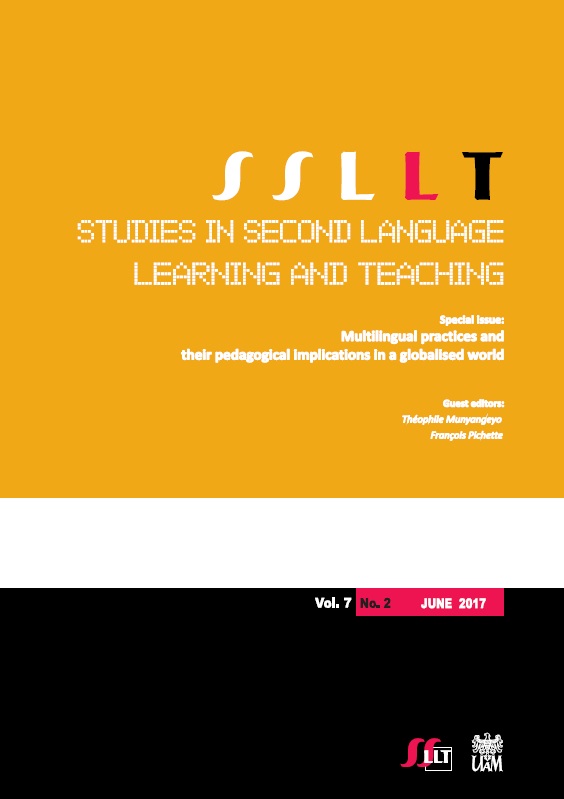“Did we learn English or what?”: A study abroad student in the UK carrying and crossing boundaries in out-of-class communication
“Did we learn English or what?”: A study abroad student in the UK carrying and crossing boundaries in out-of-class communication
Author(s): Khawla M. BadwanSubject(s): Foreign languages learning
Published by: Wojskowe Biuro Historyczne im. gen. broni Kazimierza Sosnkowskiego
Keywords: out-of-class communication; language testing; learners’ voice; Study abroad; formal language education
Summary/Abstract: Language educators in many parts of the world are torn between preparing language learners to pass language proficiency tests and trying to let theirclassrooms reflect the messiness of out-of-class communication. Because testing is “an activity which perhaps more than any other dictates what istaught” (Hall, 2014, p. 379), helping students to pass language proficiency tests seems to be a current top priority. Since globalisation “has destabilised the codes, norms, and conventions that FL [foreign language] educators relied upon to help learners be successful users of the language once they had lefttheir classrooms” (Kramsch, 2014, p.296), the gap between what is taught in classrooms or measured in examination halls and what is used in real life situations has become much bigger. Testimonies from Study abroad students feed into this discussion. This article addresses the gap between being a languagelearner and a language user and the implications of this on learners’ perceptions of their language abilities, as illustrated by the story of Mahmoud,a study abroad student in the UK. It also features learner’s voice, exploring Mahmoud’s views of his previous formal language education and concludes with pedagogical implications for language educators.
Journal: Studies in Second Language Learning and Teaching
- Issue Year: VII/2017
- Issue No: 2
- Page Range: 193-210
- Page Count: 18
- Language: English

